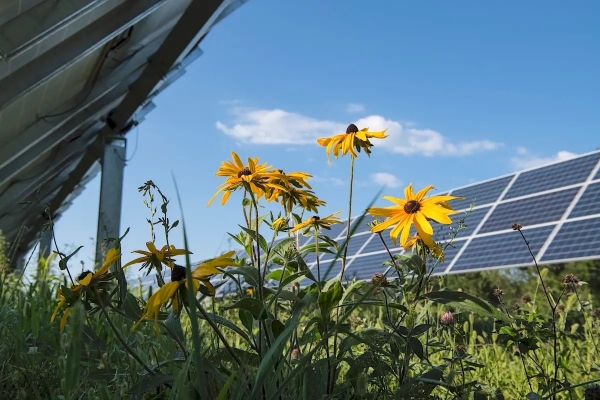Global bird sightings from citizen scientists and a view into “climate niches” reveal unexpected risks for some birds.
articles
Less Intensive Works Best for Agricultural Soil
The less intensively you manage the soil, the better the soil can function.
Blackberries With No Thorns? UF Scientist Assembles Genome of a Blackberry in Major Step to Breeding Better Fruit
Thornless, disease-resistant, and tastier blackberries could be on the horizon — thanks to new genetic research from the University of Florida.
Climate Change May Lead to Rising Arsenic Levels in Paddy Rice, Increasing Health Risks
A new study by researchers at Columbia University Mailman School of Public Health reveals that climate change may significantly impact arsenic levels in paddy rice, a staple food for millions across Asia.
To Help Growers and the Grid, Build Solar on Farmland, Research Says
Two new studies suggest that devoting a small fraction of U.S. farmland to solar power would be a boon both for the energy system and for farmers themselves.
Flower Strips Could Save Apple Farmers Pest Control Costs
Planting wildflowers in apple orchards could save farmers up to £3,000 per hectare a year, according to a new study.










